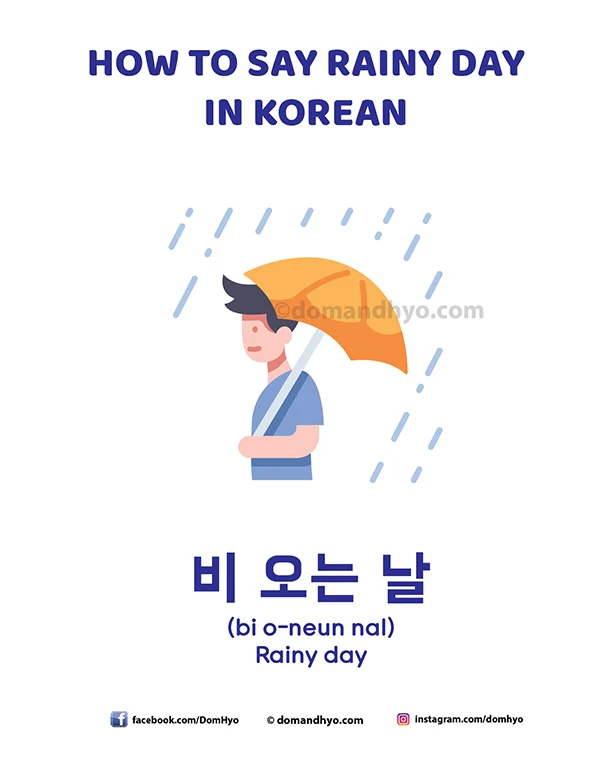
How do you usually feel on rainy days? Some people love them and love hearing the sound of the rain falling. Others might feel a bit down or gloomy and hate staying inside all day.
Today we’re going to teach you how to say ‘rainy day’ in Korean, as well as some other related words and phrases. You’ll be able to communicate your feelings about rainy days in no time.
Basic Word/Phrase
Saying this phrase is really simple and easy. It’s ‘비 오는 날’ [bi o-neun nal]. If we were to translate this literally, it would be more like ‘the day that rain comes’.
Let’s break it down even further.
We know from a previous post here, that the word for rain is ‘비’.
‘오는’. This is based on the verb ‘오다’ which means ‘to come’. Dropping the verb stem ‘다’ and adding ‘는’ changes the verb into its noun form. (We will eventually do some posts explaining basic grammar like this soon.)
Finally, we have the word ‘날’ which means day. The great thing about this phrase is that it includes 3 different words that are commonly used in daily conversation.
Let’s take a look at some example sentences using this phrase.
비 오는 날을 싫어해요. [bi o-neun na-reul si-reo-hae-yo.] = I hate rainy days.
비 오는 날을 좋아해요? [bi o-neun na-reul jo-a-hae-yo?] = Do you like rainy days?
비 오는 날이 너무 좋아요! [bi o-neun na-ri neo-mu jo-a-yo!] = I love/like rainy days!
보통 비 오는 날에 뭘 하세요? [bo-tong bi o-neun na-re mwol ha-se-yo?] = What do you usually do on rainy days?
